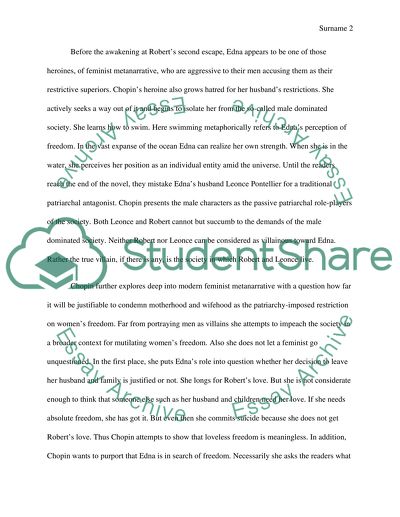Cite this document
(“The Awakening Essay Example | Topics and Well Written Essays - 1000 words”, n.d.)
The Awakening Essay Example | Topics and Well Written Essays - 1000 words. Retrieved from https://studentshare.org/english/1461859-the-awakening
The Awakening Essay Example | Topics and Well Written Essays - 1000 words. Retrieved from https://studentshare.org/english/1461859-the-awakening
(The Awakening Essay Example | Topics and Well Written Essays - 1000 Words)
The Awakening Essay Example | Topics and Well Written Essays - 1000 Words. https://studentshare.org/english/1461859-the-awakening.
The Awakening Essay Example | Topics and Well Written Essays - 1000 Words. https://studentshare.org/english/1461859-the-awakening.
“The Awakening Essay Example | Topics and Well Written Essays - 1000 Words”, n.d. https://studentshare.org/english/1461859-the-awakening.


